On March 25, 2023, the Annual Academic Meeting and Academic Committee Meeting of the Key Laboratory of Earth System Numerical Simulation (hereinafter referred to as the "Laboratory") were held in Beijing. Attending the meetings was Ding Yihui, Director of the Laboratory’s Academic Committee, Academician of the Chinese Academy of Engineering, and Researcher of the National Climate Center, Chen Jingming, Fellow of the Academy of Science of the Royal Society of Canada, and Professor of Fujian Normal University, Chen Dake, Academician of the Chinese Academy of Sciences, Researcher of the Second Institute of Oceanography of the Ministry of Natural Resources, Qian Depei, Academician of the Chinese Academy of Sciences, and Professor of Beihang University, Tan Zhemin, Academician of the Chinese Academy of Sciences, Professor and Executive Vice President of Nanjing University, and Director Zhu Fuyuan of Project Office of the Research and Development Affairs Office of Tsinghua University. Professor Luo Yong, Dean of the Department of Earth System Science in Tsinghua University, presided over the meeting, and Professor Huang Xiaomeng, Director of the Laboratory, and other key members of the Laboratory participated the meeting.
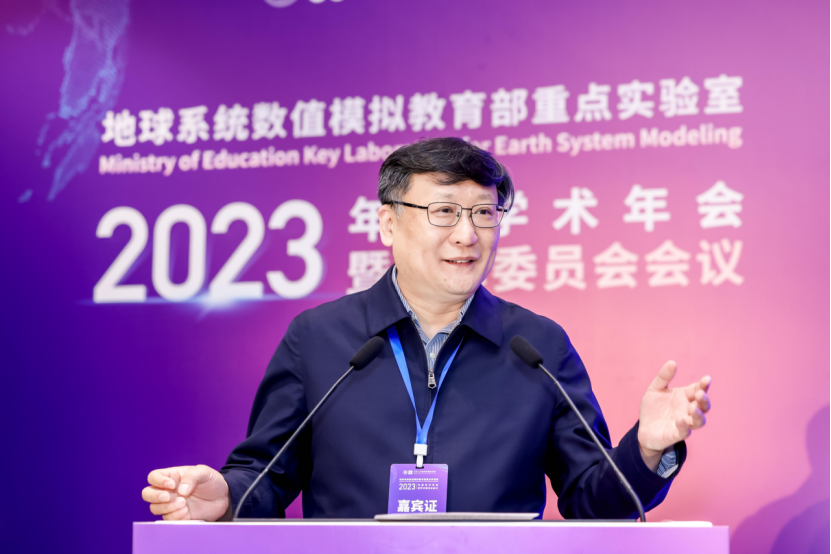
Luo Yong presides over the meeting
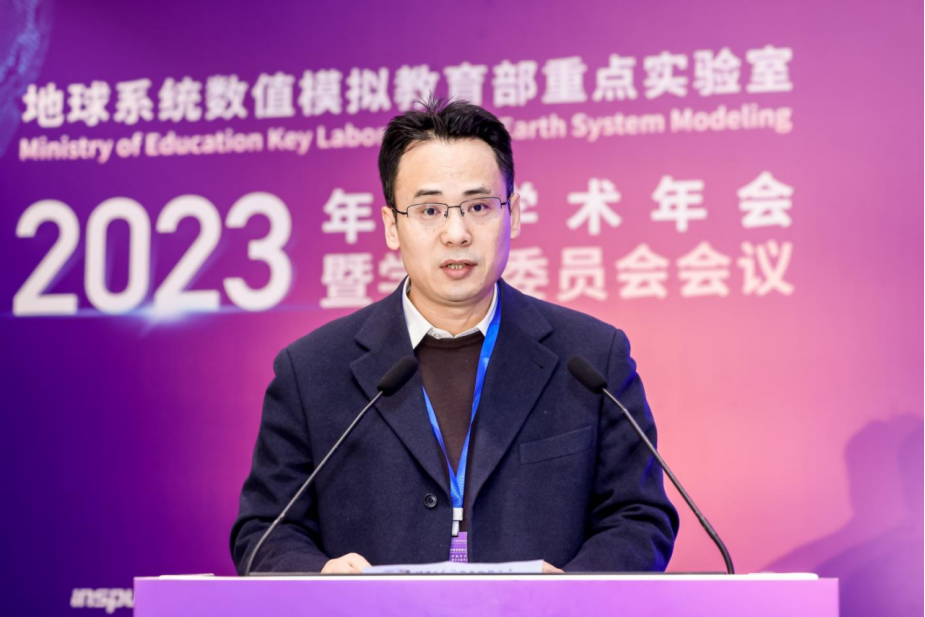
Zhu Fuyuan addresses the meeting
Director Zhu Fuyuan noted in his address that the Laboratory has fully leveraged the advantages of the foundation of earth system science and computer science and technology in Tsinghua, and persisted in interdisciplinary integration and independent innovation exploration, achieving a series of advanced results. Zhu Fuyuan expressed the hope that the Laboratory can make full use of the high-performance computing platform in the future, produce more high-level achievements, cultivate more top-notch talents, and contribute to the development of earth system science and meeting the national strategic needs.
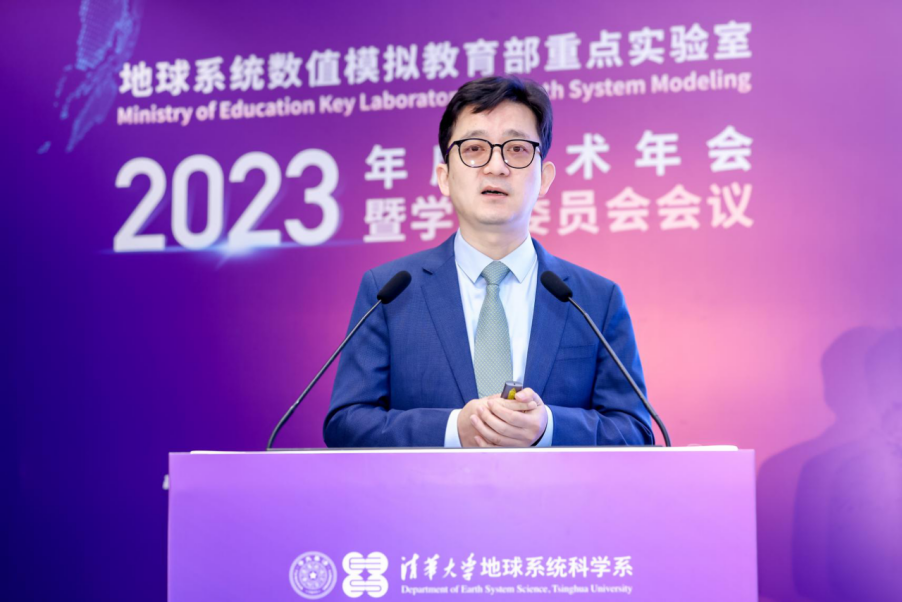
Huang Xiaomeng delivers a report
Professor Huang Xiaomeng, Director of the Laboratory, delivered the "Report on the Work of the Key Laboratory of Earth System Numerical Simulation". Huang Xiaomeng introduced that the Laboratory, relying on interdisciplinary resources, has carried out research around the numerical simulation methods of the earth system, earth system data integration, and high-performance supporting technologies and applications, developing its own distinctive characteristics. In recent years, the Laboratory has scored a series of achievements with interdisciplinary characteristics, and also accumulated some practical experience of disciplinary integration and coordinated development. The Laboratory has become a base for gathering and cultivating talents for global change research in China, which has contributed to cultivating young talents with interdisciplinary competence in earth science, computer science, computational mathematics and economics, and enhancing China's international academic status in this field.
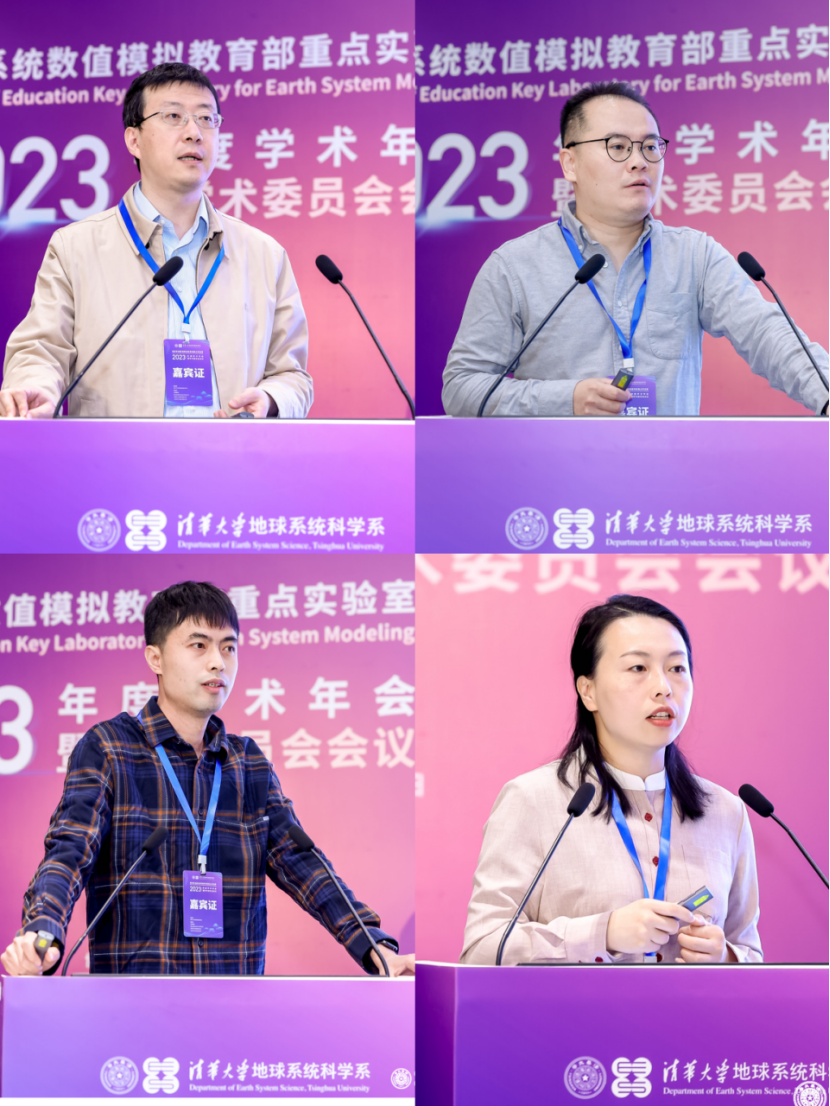
Zhang Qiang, Li Wei, Wang Yong and Cai Wenjia (from left to right and from top to bottom) deliver speeches respectively.
Professor Zhang Qiang, Associate Professor Li Wei, Associate Professor Wang Yong and Professor Cai Wenjia from the Department of Earth System Science (DESS) in Tsinghua University introduced the recent research work of their respective teams, presenting the latest progress and innovative achievements of the Laboratory in atmospheric chemistry, land ecological processes, atmospheric physics and climate change economics.
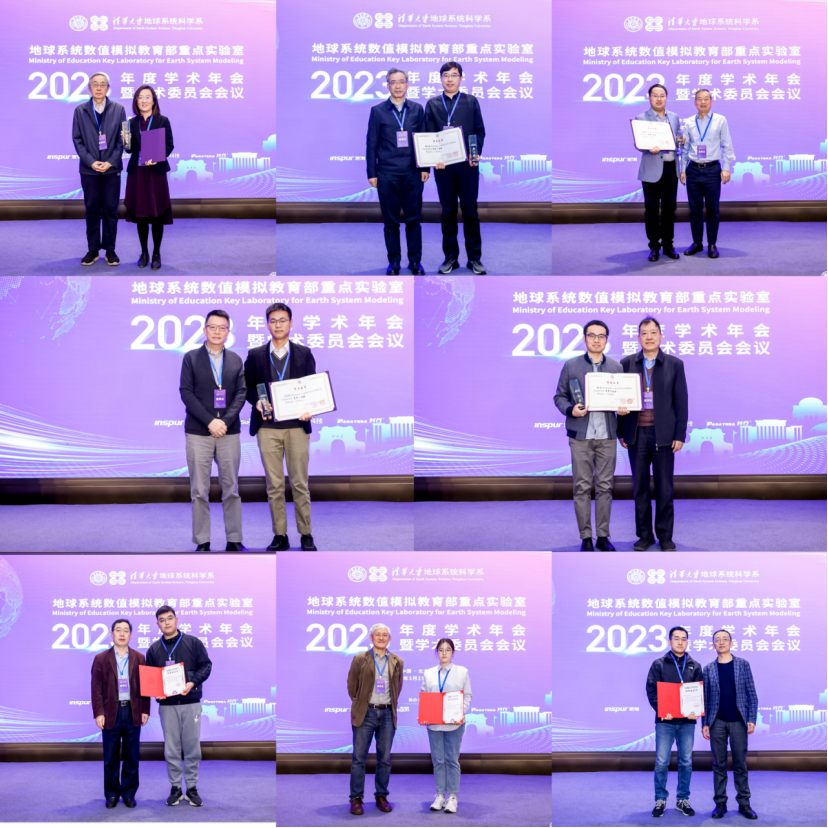
From left to right, from top to bottom are winners Geng Guannan, Jin Jiangbo, Li Xuecao, Ma Zhanhong, Yang Ben, Gou Ruikun, Ni Hao and Zhao Dingchi.
At the annual meeting, the Award Ceremony for the Tsinghua University-Inspur Group Award for Young Talents for Computational Earth Sciences (hereinafter referred to as the Inspur Award) and the Friends of Tsinghua-Inspur Group Outstanding Students Award was held. Since its inception in 2012, the Inspur Award has selected 54 winners so far, who have been constantly exerting their efforts in many research fields as a pivotal force in China's development of earth system science. The five winners rendered academic reports around their respective award-winning research.
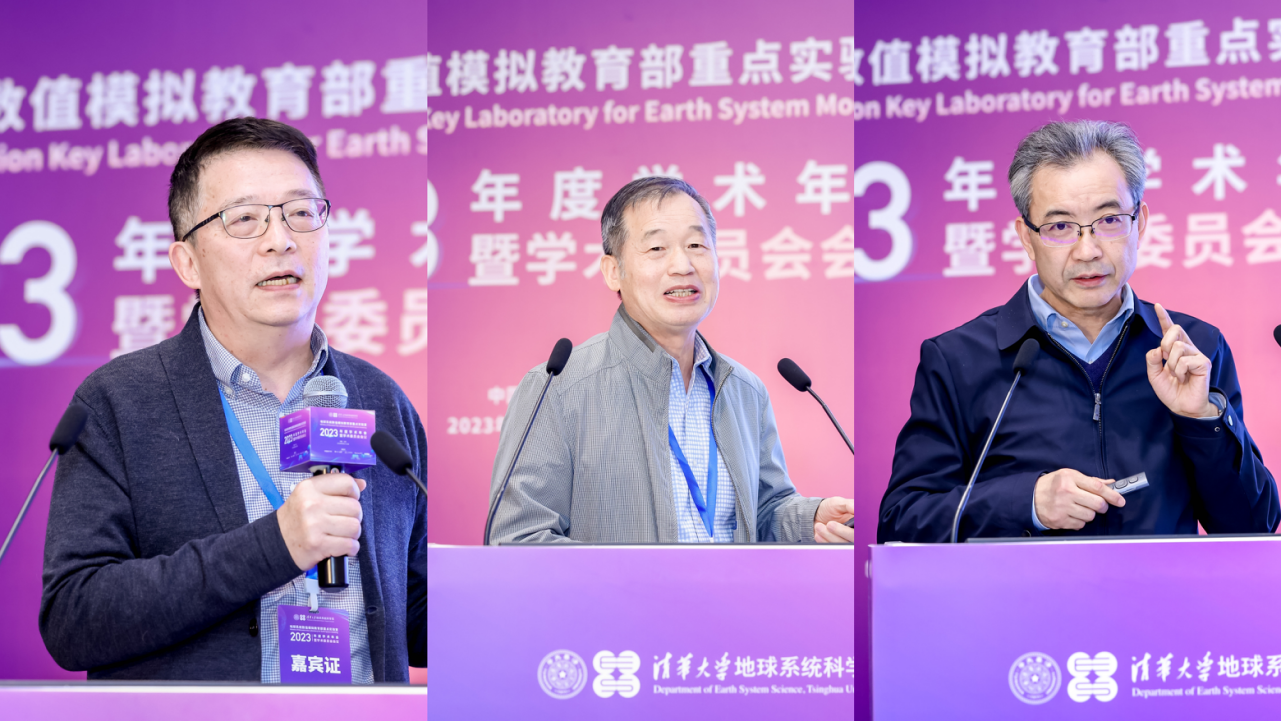
From left to right is Chen Dake, Chen Jingming and Tan Zhemin delivering keynote reports.
In the keynote report session, Academician Chen Dake presented a prospect for the main key research direction of artificial intelligence oceanography, a new frontier interdisciplinary field, and interpreted the key scientific and core technological issues in all directions. Academician Chen Jingming, with a focus on the goal of global carbon neutrality, introduced the rapidly developing global carbon assimilation data system in recent years, as well as a variety of emerging technical means and application results related to carbon monitoring and carbon neutrality. Academician Dai Yongjiu introduced the development and improvement of solutions for several important physical processes in the global high-resolution land surface model, and the research progress of coupling simulation of land surface model and human activities. Academician Tan Zhemin introduced the "non-instantaneous convergence-convection feedback" method which can effectively simulate the development of the convection system in the high-precision numerical model, as well as the role of the method in MJO simulation.
Eight grantees of the Laboratory's Open Fund in 2023 presented their research proposals respectively. The Laboratory's Open Fund aims at promoting laboratory construction and discipline development and supporting the R & D and application of the Tsinghua University’s Community Integrated Earth System Model (CIESM). Through close cooperation with scholars from different research fields in many institutions, the Open Fund promotes multidisciplinary integration, and supports the sustainable development and application of the CIESM.
The Academic Committee affirmed the Laboratory’s achievements in recent years and encouraged the Laboratory to maintain its interdisciplinary characteristics, pursue independent innovation, and promote the integrated development of earth system science and high-performance computing technology. In the next step, the Laboratory will continue to promote key work, and with this annual meeting as an opportunity, work out the research direction, optimize the research layout, address major national needs and the world's scientific frontiers, pioneer the exploration of science and technology, and bravely take up the mission of serving the national strategic needs. The annual meeting was conducted both online and offline, with the forum live broadcast attracting a total of 340,000 viewers.
Written by Peng Yiran